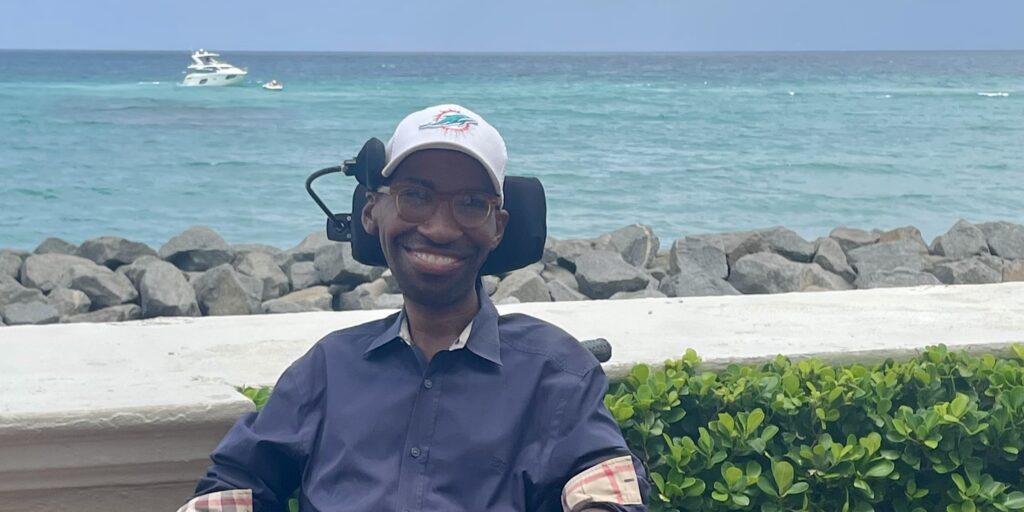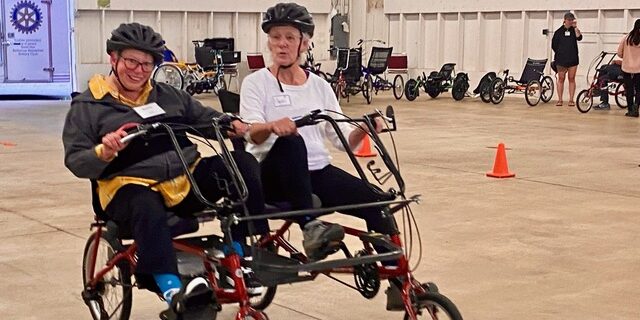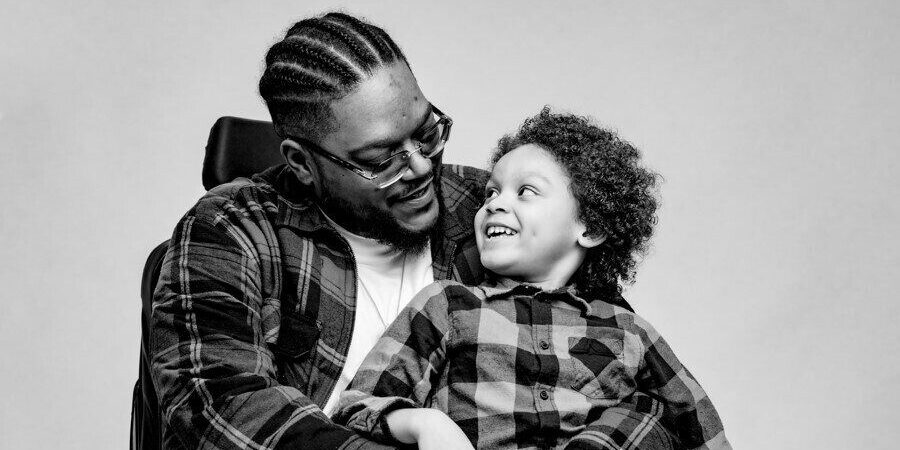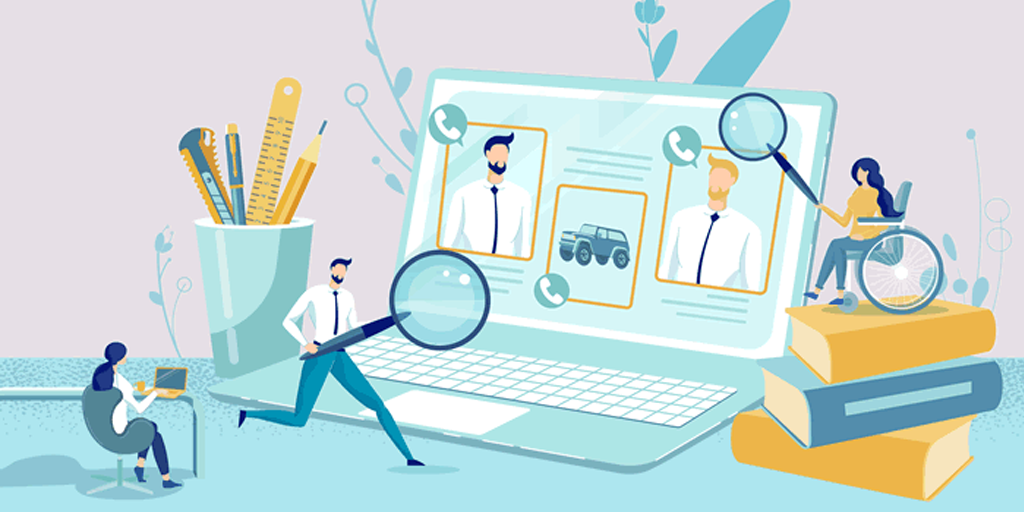
Find the Right Resources
By Charmaine Dymond | Friday, May 14, 2021
Amy Curran, 38, lives in Philadelphia with GNE myopathy, as do her three older siblings. Considering the high cost of accessible vehicles, this close-knit family decided to pool their resources and buy one wheelchair-accessible van. They use an online calendar to keep track of who’s using the van when. The van fits two power wheelchairs, so they often take turns going on outings in pairs.
This inventive approach means the four siblings get the use of a much-needed accessible vehicle at a fraction of the cost, which has helped Amy maintain her social life and independence. “Without the van, my partner takes me to social events in his car with a transfer chair, and I have far less independence without my power wheelchair,” she says.
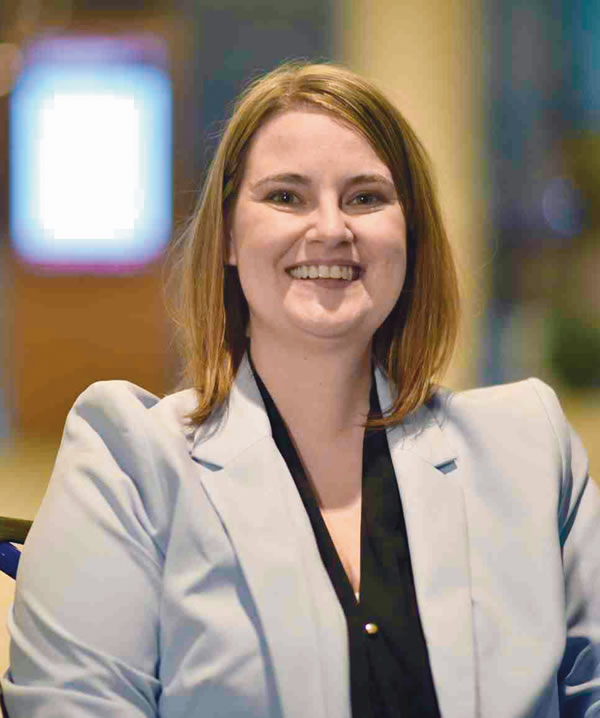
Amy Curran
Living with neuromuscular disease can mean using a variety of resources, equipment, and support. But as Amy and her siblings have discovered, accessing these resources isn’t always easy, and getting the help you need may require thinking outside the box.
“Resources can turn up in unexpected ways. It’s important to think creatively and recognize the gems when you find them,” says Deborah Wais, LCSW, a social worker at the MDA Care Center at the University of California San Diego.
Here are some ideas to help you find the right resources.
Be prepared
The first step to finding the resources you need is knowing what you need, which can be more challenging than it sounds. That’s why it’s important to understand how your disease might progress and be proactive in your medical care. Deborah recommends talking to your care team about your diagnosis and what your future needs might be.
Mike Myers lives in Elmer, NJ, with his 21-yearold son, Jacob, who has Duchenne muscular dystrophy (DMD). He and Jacob have learned that understanding possible future needs makes it easier to plan ahead. “It can take six months to get a new piece of equipment when it comes to dealing with insurance and approvals,” Mike says. “We try to be ahead of the game and get the ball rolling before Jacob absolutely needs something.”
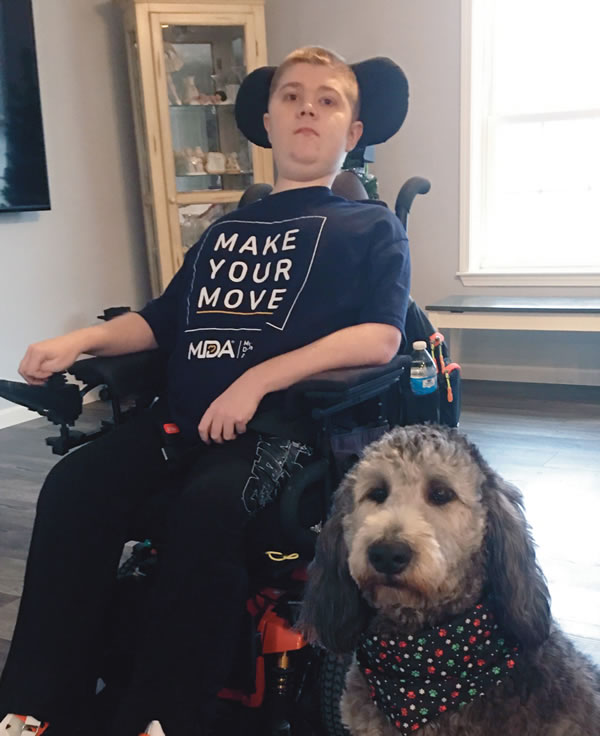
Jacob Myers
When Jacob was younger, Mike found that talking to other parents of kids with neuromuscular disease was helpful in understanding what Jacob might need in the future. “We get a lot of information from networking with other parents and hearing what they’ve been through and what tools they’ve used,” Mike says.
MDA’s National Connections Program offers a way for people in the neuromuscular disease community to connect with other individuals living with neuromuscular disease, caregivers, parents, spouses, or siblings. To join the program, contact MDA’s Resource Center at 833-ASK-MDA1 or resourcecenter@mdausa.org. You can request to be matched with others based on criteria including diagnosis, age, or interests.
Like many people in the neuromuscular disease community, Mike is happy to pass on the support he’s received to others. “The other day, a man I met at an MDA event called me. His son is 8 and has started to go through some of the same things Jacob did at that age,” Mike says. “We’ve been doing this long enough that we can help other people find the resources they need now.”
Be proactive
Josh Cueter, 23, lives with spinal muscular atrophy (SMA) in Troy, Mich. He’s found that being proactive is the best way to get access to available resources.
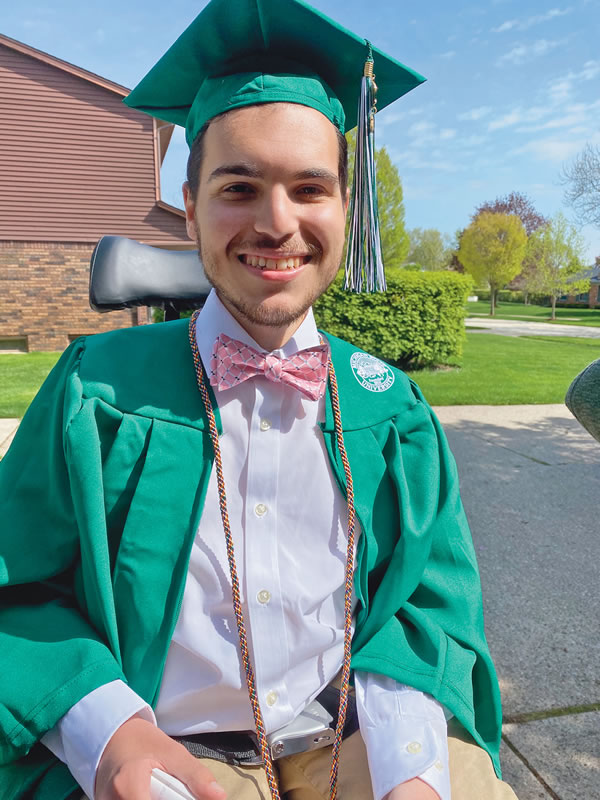
Josh Cueter
“It’s a lot of phone calls, research, and trial and error,” says Josh, who does research before speaking with caseworkers and social workers who help him navigate programs such as Medicaid. “I’ve had the most success doing a fair amount of legwork on my end and then just laying it all out there for them. It helps to maximize the chance of success.”
Josh also took a proactive approach to finding personal care attendants (PCAs) while in college. After posting a job advertisement on campus, he recruited and trained a network of PCAs to meet his needs. “I had the most success at finding caregivers among my fellow students,” he says. “A lot were health science students who could use their work for me as a resume builder, but I also found good people through word of mouth and social networks.”
Talk to experts
Sometimes the challenge is in knowing what help is available. This was Josh’s experience when he started college. “There are a fair number of resources to help people with disabilities create their own independent lifestyle through work and school, but it was hard to understand what the different agencies provided and how it all fit together,” he says.
MDA’s National Resource Center is staffed by specialists, many of whom have personal experience navigating school and employment with neuromuscular diseases. Resource Center specialists can provide information on many aspects of living with neuromuscular disease, from getting genetic testing to getting a service animal. They also can direct you to national, regional, and local resources. (Call the MDA Resource Center at 833-ASK-MDA1 or email resourcecenter@mdausa.org.)
Mike has found that MDA Engage educational events also are a useful source of information. Engage programs offer the opportunity to hear from and interact with presenters, which include experts and individuals living with neuromuscular disease.
In January, Mike attended an Engage webinar on “Psychosocial Support for Living with a Chronic Illness,” which has helped him deal with the added stress of the COVID-19 pandemic. “While we miss the social aspect and spontaneity of traditional MDA events, Engage online has been an effective way to share important information,” Mike says.
Make your own luck
When the resources you need aren’t available, it’s time to think creatively, which is one of Amy’s specialties.
For Amy, finding resources that help her continue creative pursuits, like painting, is crucial to her well-being. “Losing my ability to be creative feels like I’m losing my sense of self,” she says. She talks to people with all kinds of disabilities to get ideas, which is how she learned about a gripping tool designed for people with rheumatoid arthritis that helps her hold a paint brush.
“I make it a personal mission to find creative tools and give everybody I know access to tools that help them keep their personal identity as well,” Amy says.
With that mission in mind, she used Prezi to create an online virtual presentation on adaptive equipment and resources. “It’s full of different things that can help you with everyday tasks and living creatively so that you don’t have to scour the internet,” she says.
Amy also is involved in advocacy work. Her current goal is to change a rule in Pennsylvania that doesn’t allow spouses to be paid caregivers. “My partner and I are not married because if we were, he could not be my paid caregiver,” Amy says. She is researching policies in other states and plans to bring that information to her state legislators.
Finding, adapting, or even creating the resources you need isn’t always easy, but planning, persistence, and creative thinking can help. “It can be hard work, but if you keep searching and being proactive, something will stick, and it’ll pay off in the end,” Josh says.
Charmaine Dymond is a freelance writer in Halifax, Canada.
MDA Community Resources
MDA is committed to transforming the lives of people living with neuromuscular disease. Here are programs and services that can help you find the resources you need for everyday life.
Access Workshops
These educational workshops provide information and resources on access and overcoming barriers. Each workshop includes online activities, videos, quizzes, and more that help you build health literacy, empowerment, and self-advocacy skills. They’re available on demand, allowing you to work through them at your own pace.
Advocacy Center
Find resources and webinars that will help you make your voice heard on issues that are important to the neuromuscular disease community.
Community Education
From disease fact sheets to in-depth guides on genetics and clinical trials, MDA provides materials to help educate our community about the fundamentals of neuromuscular disease in English and Spanish.
Engage Events
MDA Engage community education programs empower individuals and families with knowledge and resources around neuromuscular disease. Some are focused on adults or children, specific diseases, or caregivers. All are free to attend.
Facebook Live Events
Through Facebook Live, MDA tackles timely and engaging topics like the COVID-19 vaccine and accessible fashion. Follow MDA on Facebook and find past events on MDA’s YouTube channel.
MDA Care Centers
We support a network of Care Centers at more than 150 of the top healthcare institutions across the United States.
National Resource Center
The Resource Center provides one-on-one support via phone or email for individuals and families looking for information about neuromuscular diseases, services, activities, and more. Resource Center staff are available Monday through Friday, 9 a.m. to 5 p.m. CT, and are typically able to answer questions within one to two business days. Call 833-ASK-MDA1 or email resourcecenter@mdausa.org.
Helpful Resources
Use the links below to find national and local services and resources
Community support and independent living
Area Agencies on Aging and Disability
Local Centers for Independent Living
211 Network
Administration for Community Living
Patient Resource, by Amy Curran
Accessibility
ADA National Network
Wheelchairs and adaptive technology
National Seating and Mobility
NuMotion
State Assistive Technology Centers
Employment services
Social Security Ticket to Work Program
Lime Connect
Disability:IN
Job Accommodation Network
State Vocational Rehabilitation Agencies
Healthcare services
Center for Medicare Advocacy
National Organization for Rare Disorders
Patient Services Incorporated
Pharmaceutical Assistance Programs
Caregiver services
Caregiver Action Network
Caregiver Resource Network
Family Caregiver Alliance
Financial services
ABLE National Resource Center
National Disability Institute
NCOA Benefits Checkup
Prosperity Now
Next Steps and Useful Resources
- Learn more about living independently with a disability.
- Stay up-to-date on Quest content! Subscribe to Quest Magazine and Newsletter.
TAGS: Featured Content, MDA Care Centers, MDA Resource Center, National Connections Program, Resources
TYPE: Featured Article
Disclaimer: No content on this site should ever be used as a substitute for direct medical advice from your doctor or other qualified clinician.


